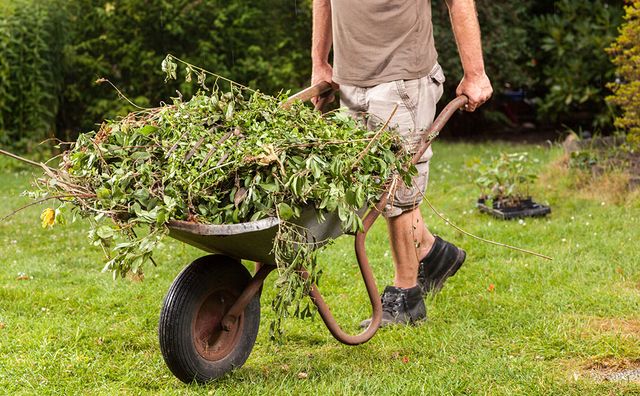
Whether you have a large or small garden, over the year you are likely to accumulate some garden waste. Indeed, even something as simple as cutting the grass or weeding will leave you with a pile of cuttings. So, rather than let it pile up in your garden, how should you dispose of this garden waste properly? Especially when it can be repurposed in so many useful ways.
What Can Garden Waste Be Used For?
When we think of garden waste, many of us don’t realise that this sort of waste can actually be reused in lots of useful ways. Indeed, here are just some of the ways garden waste can be reused:
Renewable Energy
Garden waste can be degraded into something called biogas, which is used as biofuel. If we used more biofuel, there wouldn’t be as high of need for petrol, which releases harmful gases into our atmosphere.
Sewage Disposal
Garden waste is actually a very sustainable way to make sewage suitable for getting put back into the environment. As, when mixed with sewer water, it can reduce the pathogens and pollutants contained within this sewage.
Composting
Rather than getting rid of your garden waste, instead repurpose it by putting it in a compost bin. Come next year, you’ll have lots of lovely soil to put in your borders.
How to Dispose of Garden Waste Responsibly?
Now that you know that your garden waste can be used in useful ways to help the environment. Where should you dispose of this waste to ensure that it gets recycled properly?
Green Waste Approved Landfill
Before taking your garden waste to your local landfill or recycling plant, do your research and make sure that it’s a green waste approved landfill. As these sites will be able to use your waste in a safe and useful manner.
Contact Your Local Council
If you’re at all unsure about what to do with your garden waste, contacting your local council is one of best ways to get advice. Your council will be able to advise you what your options are and will let you know the costs of an uplift.
Try Composting
As mentioned above, composting is an ideal way to reuse garden waste in an environmentally friendly manner. Now, before you dismiss the idea of composting because it sounds hard or complicated, starting your own composting bin is actually very simple.
To get started, get a plastic compost bin and start putting your garden or kitchen waste in – preferably starting with at least 30cm of waste. Keep adding to your bin whenever you have any rubbish and remember to mix the contents of your bin a couple of times a month.
When adding to your bin, the following are great for your compost bin:
- Grass cuttings, weeds and leaves.
- Vegetable or fruit scraps.
- Old flowers or plants (as long as they are not diseased).
- Shredded paper.
- Tea bags or coffee grounds.
- Animal fur.
Never add animal waste, nappies or meat leftovers to your compost bin.
Keep in mind, composting is a long process, so you’re unlikely to be able to use your compost for around a year. You’ll know it’s ready when it turns to a dark compost-like texture.
More info at – https://www.kwiksweep.co.uk/house_clearance_London